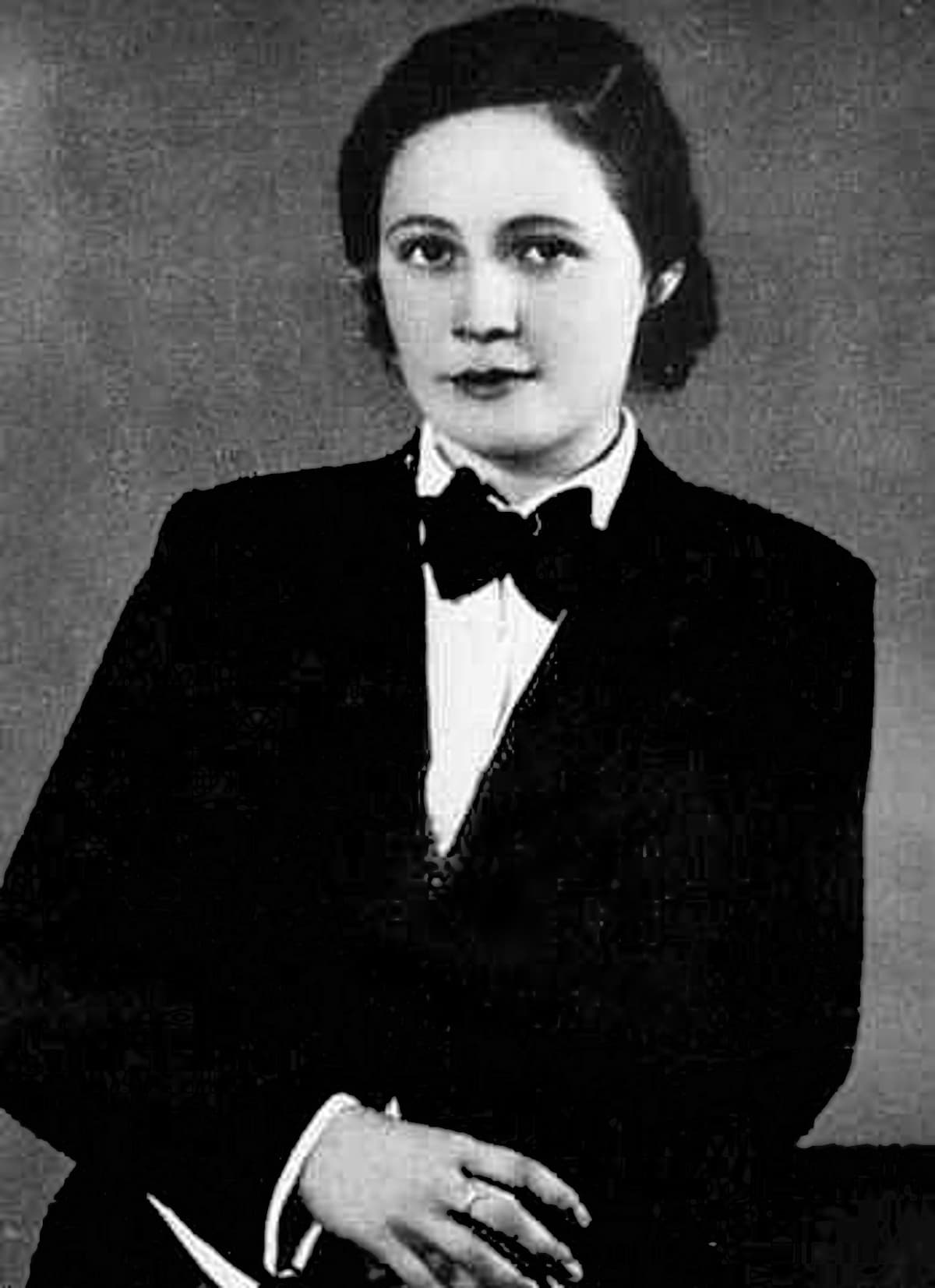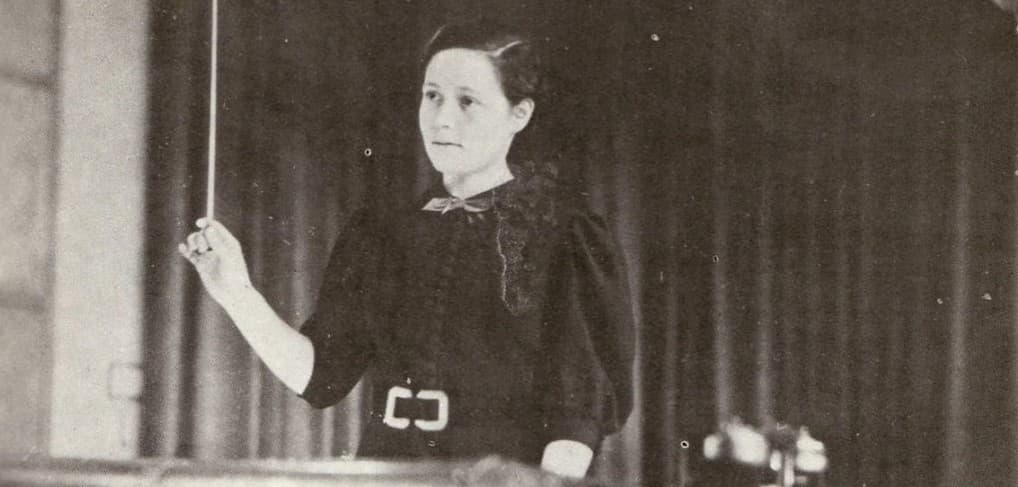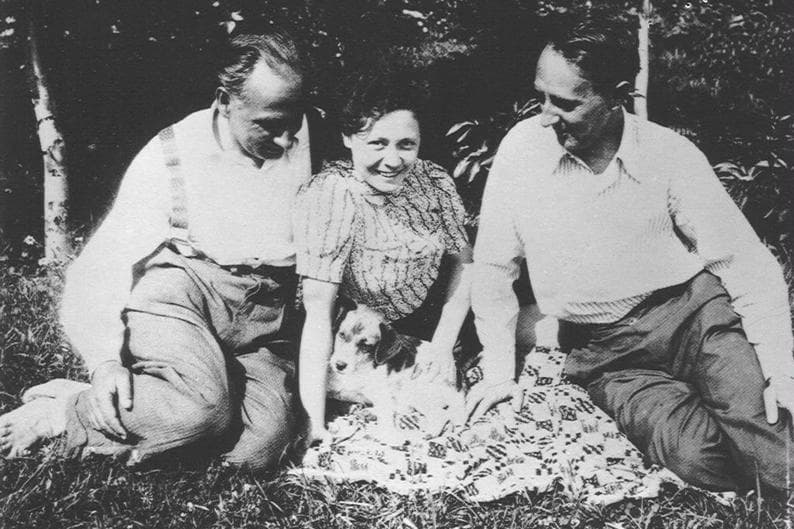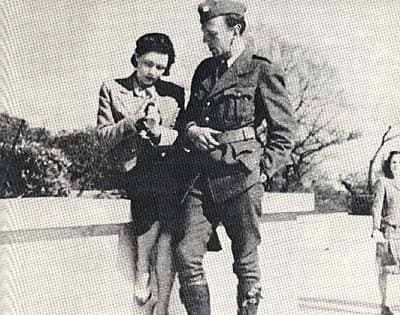Vítězslava Kaprálová is one of music history’s most fascinating what-ifs. She was hugely talented, but she died in her twenties before her creative potential could be fully realized.
Here are thirteen facts you might not know about Vítězslava Kaprálová.

Vítězslava Kaprálová, 1935
1. She was born in 1915. Her mother was a voice teacher and her father was a composer who had studied under Janáček. Her parents were very busy, and from an early age, they left Kaprálová to fend for herself alone in the house. In 1923, they separated.
2. She started composing when she was nine years old. At fifteen, she started attending the Brno Conservatory. At twenty, she began studying in Prague.
3. The graduation piece she wrote when she left Brno at the age of twenty was an entire piano concerto. It’s mesmerizing.
Vítězslava Kaprálová: Piano Concerto (1935)
4. The graduation piece that she wrote when she left Prague was called the Military Sinfonietta. She dedicated the work to Edvard Beneš, President of the Czechoslovak Republic. “The composition does not represent a battle cry, but it depicts the psychological need to defend that which is most sacred to the nation,” she wrote. Keep in mind that the background to her words was the deteriorating political situation in prewar Europe.
Vítězslava Kaprálová: Military Sinfonietta Op.11
5. Kaprálová’s parents wanted her to take over the family music school, but she was more interested in composing and conducting than in studying pedagogy. In the 1930s more and more women conductors were making appearances with orchestras, but there was still a sense they were more striking novelties than serious contenders for big jobs.

Vítězslava Kaprálová conducting
6. In 1937, at the age of twenty-two, she conducted the Czech Philharmonic. At twenty-three, she conducted the Military Sinfonietta with the BBC Orchestra. These would have been prestigious opportunities for any young conductor but were especially impressive for a woman.
7. At twenty-two, she continued her studies in Paris. She wanted to study with Nadia Boulanger, the most influential music teacher of the twentieth century, but her French was not good enough yet. Instead, she became the protégé of Bohuslav Martinů, a married composer twenty-five years her senior whose works she had long admired. Martinů and Kaprálová ended up falling in love.

Vítězslav Kaprál,Vítězslava Kaprálová and Bohuslav Martinů
8. Kaprálová could only afford to study in Paris because of a one-year stipend from the French government, so she eventually returned home, unsure when – or if – she’d ever be able to return to Paris. The political situation was rapidly deteriorating. On 30 September 1938 the Munich Agreement was reached between the Nazis, Britain, France, and Italy, permitting the annexation of the Czech borderlands known as the Sudetenland. It was an agreement that would open the door to full-blown war the following year. It also meant that President Edvard Beneš, the dedicatee of her Military Sinfonietta, was forced to resign.
9. In late November 1938, after consultation with various political figures, Kaprálová left again for Paris (and for Martinů). The following months were a flurry of creative activity. For a long time, they discussed leaving Europe, possibly for America, but ultimately Kaprálová ran into dead ends when looking for a situation abroad. In addition, Martinů’s pro-Czech cantata Field Mass marked him out as an enemy of the Nazis, and pressure grew on him to flee with his family.

Vítězslava Kaprálová and Jiří Mucha
10. During this time, Kaprálová met Jiří Mucha, the son of the artist and the writer who had written the libretto for Field Mass. Kaprálová and Mucha were the same age, and Mucha was involved in pro-Czech military efforts, whereas Martinů had been rejected for service due to his age. It wasn’t long before, against the backdrop of war, Mucha and Kaprálová fell in love.
11. Kaprálová married Mucha on 23 April 1940. She was in and out of the hospital over the following weeks with a mysterious illness, diagnosed as tuberculosis but which was possibly typhoid fever.
12. On 19 May she saw Martinů for the last time. On 20 May Mucha evacuated her from Paris to a Montpellier hospital. On 14 June the Nazis reached Paris. On 16 June, she died.
13. Martinů wrote after she was posthumously inducted into the Czech Academy of Sciences and Arts, “Only rarely have I had the opportunity to encounter such genuine talent with such confidence in the task she wanted to – and was to – accomplish… I was learning along with her, and it was a great joy as well as an experience to see the fight between the soul and the material again. Only rarely have I met someone with such a sharp sense for envisioning a work before it was written down. If you find someone who actually understands how the parts of the whole relate to each other, whose primary interest is in the whole, then you know that you have encountered a first-class artist.”
For more of the best in classical music, sign up for our E-Newsletter
